#book of exodus
Text
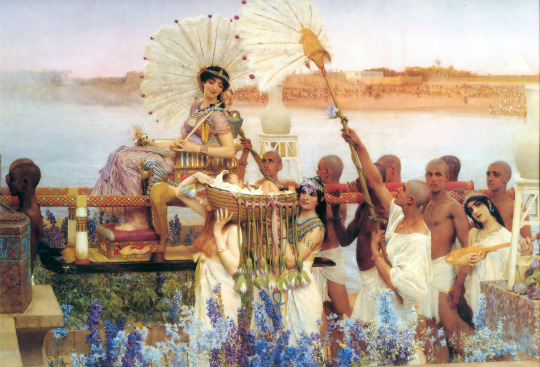
The Finding of Moses, Lawrence Alma-Tadema, 1904
#art#art history#Lawrence Alma-Tadema#religious art#Biblical art#Christian art#Christianity#Old Testament#Hebrew Bible#Moses#Book of Exodus#Orientalism#Orientalist art#Academicism#Academic art#British art#English art#Anglo-Dutch art#20th century art#oil on canvas#lectionary
543 notes
·
View notes
Text

The Destruction of Pharaoh's Army by Philip James de Loutherbourg
#philip james de loutherbourg#philippe jacques de loutherbourg#moses#art#red sea#egypt#pharaoh#army#bible#biblical#exodus#waves#storm#flood#israelites#egyptians#israelite#egyptian#book of exodus#ancient egypt#christianity#skip#clouds#sea#storms#staff#wand#mace
82 notes
·
View notes
Text
I like how in discussions of "Best Dreamworks Movies" no one ever really talks about Prince of Egypt because it is so self evidently the best one there is nothing to talk about.
#dreamworks#prince of egypt#movies#animated movies#shrek#bible discourses#torah#how to train your dragon#httyd#httyd 2#httyd 3#moses#book of exodus#shrek 2#kung fu panda#kung fu panda 2#megamind#ancient egypt#the bee movie
677 notes
·
View notes
Text
when it comes to the prince of egypt i leave my religious trauma at the door
#aaron#ancient egypt#animated film#book of exodus#dreamworks#filmblr#jeff goldblum#jethro#michelle pfeiffer#miriam#moses#ralph fiennes#rameses#red sea#religious trauma#sandra bullock#the prince of egypt#val kilmer#zipporah
531 notes
·
View notes
Text

“Who is like You among the gods, O Lord? Who is like You, magnificent among the holy ones?”
Exodus 15:11
#christianity#faith#christian#religion#theology#catholic#catholicism#spirituality#bible verse#exodus#book of exodus#daily bible reading#daily bible study#daily bible verse#bible scripture#christian bible#bible study#scripture#daily scripture#biblical scripture#christian art
54 notes
·
View notes
Text

Victory in the Lord
Thy right hand, O Jehovah, is glorious in power, Thy right hand, O Jehovah, dasheth in pieces the enemy.
— Exodus 15:6 | American Standard Version (ASV)
The American Standard Version Bible is in the public domain
Cross References: Exodus 3:20; Exodus 6:1; Exodus 15:12; Exodus 15:16; Exodus 18:8; 1 Samuel 2:10; Psalm 24:8
#Lord#power#majesty#victory#Exodus 15:6#Book of Exodus#Old Testament#ASV#American Standard Version Bible
16 notes
·
View notes
Note
what do you think of the book of exodus
Fascinating book, and I don't mean that in the "you should take everything its author says at face value" sense, but rather in the "it's part of a far more complicated and messy history than most people realize" sense. Like it's obviously not describing actual historical events, but it is part of a broader historical context that most people don't understand. As always, academic opinions are good.
9 notes
·
View notes
Note
What do you think about that they found wheels and horse bones at the bottom of the red sea, and that some are claiming that thats proof of Exodus bring true
LOL. It's like saying that we found a piece of the door frame of the RMS Titanic, therefore the movie Titanic is true. Or if I find a large footprint-shaped impression in the ground, that's proof Bigfoot exists.
Which is to say, that isn't how proof works. To "prove" something, you have to account for all the other possible explanations, and why they are either untrue or less likely. Than what is, let's face it, literal magic. Have the items been dated? Have they identified their origin? How did they figure out how long they've been down there? Where are the rest of the parts? What are they the parts to? Why did they survive? Shouldn't there be more of them for the story?
Even Jewish scholars say the Exodus didn't happen.
https://en.wikipedia.org/wiki/The_Exodus#Origins_and_historicity
Most mainstream scholars do not accept the biblical Exodus account as history for a number of reasons.
[..]
The Book of Numbers further states that the number of Israelite males aged 20 years and older in the desert during the wandering were 603,550, including 22,273 first-borns, which modern estimates put at 2.5-3 million total Israelites, a number that could not be supported by the Sinai Desert through natural means. The geography is vague with regions such as Goshen unidentified, and there are internal problems with dating in the Pentateuch. No modern attempt to identify an historical Egyptian prototype for Moses has found wide acceptance, and no period in Egyptian history matches the biblical accounts of the Exodus.
[..]
While ancient Egyptian texts from the New Kingdom mention "Asiatics" living in Egypt as slaves and workers, these people cannot be securely connected to the Israelites, and no contemporary Egyptian text mentions a large-scale exodus of slaves like that described in the Bible.
The reasons include that there would have been 2,000,000 Israelites wandering around a patch of land that you can walk across in a week, which would have also meant that, walking 10 abreast (200,000 rows of people) with a comfortable walking distance between each row (e.g. 2m), those at the head of the procession would have reached beyond the halfway point before the last people departed (2,000,000 people / 10 abreast x 2m row spacing = 400,000m = 400km).
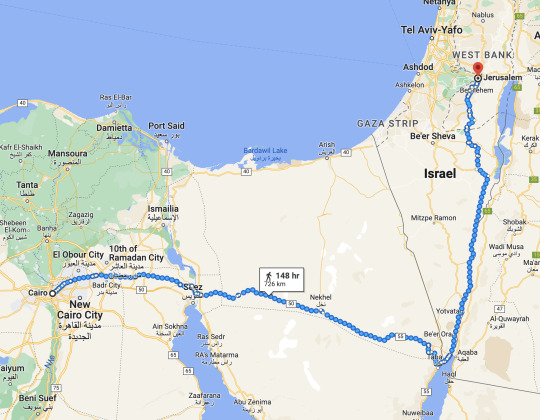
Egypt losing 2,000,000 residents, including a slave workforce of at least 600,000 (if we count only males), would have been recorded somewhere, and would have dramatically affected the economics, the social dynamics and other factors of the area. Nobody seems to have noticed. And Egypt was notorious for its record keeping, even the unsavory parts.
As with the myth of the flood, it's possible some small-scale event was the origin of this myth. Localized flooding can easily be mythologized up into a global flood that killed everybody... except the Chinese, Aztecs, Australian Aborigines, Native Americans, tribes of Africa, etc, etc, who never noticed they were all apparently drowned but never knew it.
https://en.wikipedia.org/wiki/The_Exodus#Potential_historical_origins
Despite the absence of any archaeological evidence, most scholars nonetheless hold the view that the Exodus probably has some sort of historical basis, with Kenton Sparks referring to it as "mythologized history". Scholars posit that a small group of people of Egyptian origin may have joined the early Israelites, and then contributed their own Egyptian Exodus story to all of Israel.
So, we can accept that an exodus occurred, while rejecting the notion that The Exodus, as described in the bible, actually occurred.
Anyone wishing to propose this discovery is proof of the bible will need to disprove more mundane explanations.
Because the Exodus describes specific magical events. There's a very long distance between the mundane story of three dozen Egyptian outcasts leaving town and joining the Israelites, and the magical epic saga of plagues, death of the firstborn, two million people walking across the desert for 40 years, magical, physics-defying fluid dynamics, and all the other shenanigans that is the Exodus mythology of the bible.
As someone once pointed out, even the characters in Exodus act like they live in a storybook land. The Pharaoh is just like, sure, we live in a land where magic is real and I have people who work for me who can do it. The Israelites are like, sure, a divine being from on high freed us with his hand and held back the waters of the sea, but we're going to worship this golden calf we made because we live in a world where magic and gods are everywhere, so that kind of shit isn't going to impress us into thinking a single uniquely divine creature exists, because why would we?
#ask#red sea#book of exodus#exodus myth#exodus#old testament#crossing the red sea#parting of the sea#bible#bible nonsense#bible stories#bible study#mythology#bible mythology#religion#religion is a mental illness
23 notes
·
View notes
Text
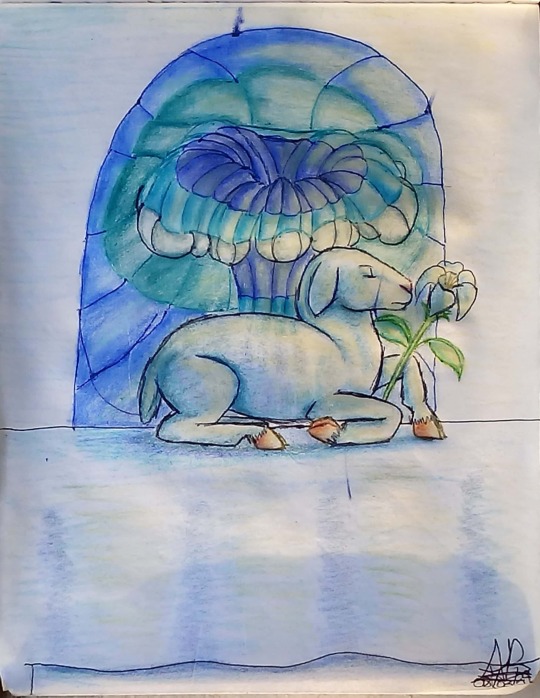
"It must be an animal without blemish, a male one year old...
You must keep it till the fourteenth day of the month when the whole assembly of the community of Israel will slaughter it at twilight.
Some of the blood must then be taken and put on both door-posts and the lintel of the houses where it is eaten.
The blood will be a sign for you on the houses where you are. When I see the blood I shall pass over you, and you will escape the destructive plague when I strike Egypt."
Exodus 12: 5-7, 13.
Made with pencil colors and pens at March 08 of 2024.
#Lent#Lent Calendar#Path Across The Desert#Lent 2024#Lent Calendar 2024#Path Across The Desert 2024#Lamb of God#Agnus Dei#Book of Exodus#Passover#Easter
3 notes
·
View notes
Text

At it again babes

And a little photo collage for the back!
6 notes
·
View notes
Text
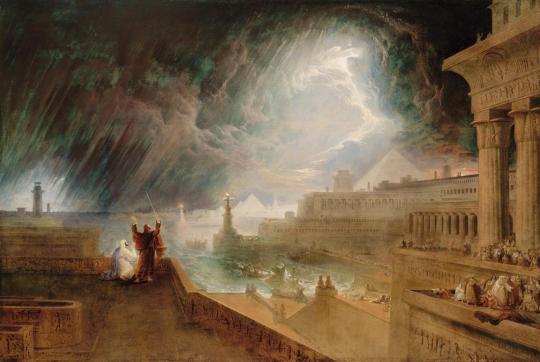
The Seventh Plague, John Martin, 1823
#art#art history#John Martin#religious art#Biblical art#Christian art#Christianity#Old Testament#Hebrew Bible#Book of Exodus#Plagues of Egypt#landscape#landscape painting#Romanticism#Romantic art#English Romanticism#British art#English art#19th century art#oil on canvas#Museum of Fine Arts Boston#MFA Boston
218 notes
·
View notes
Text



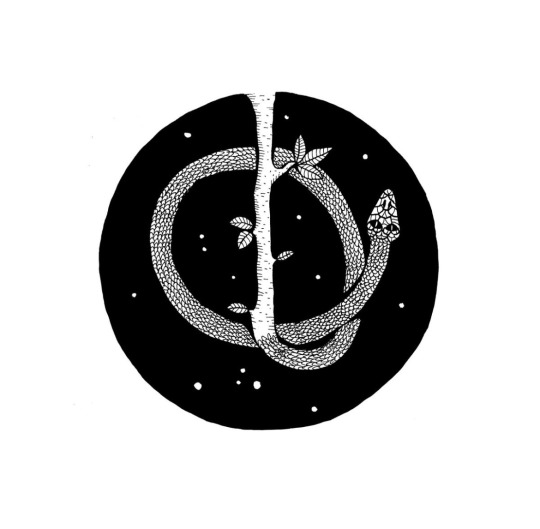



maruce ballos. exodus series: #1-7, 2021.
5 notes
·
View notes
Text
Exodus 11 Warning of the Final Plague
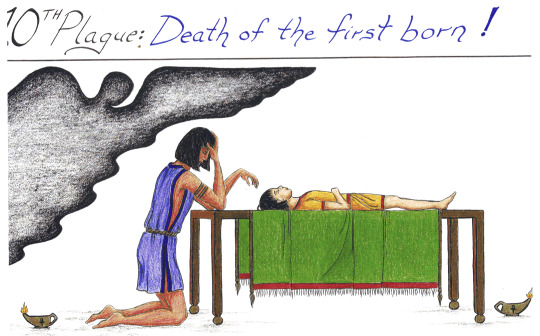
God told Moses that He would strike Pharaoh one more blow and after that Pharaoh would let you leave, in fact he would force you to leave.
Moses then announced to Pharaoh that God would strike all the firstborn sons in every family in Egypt and they would die. Even the firstborn of all the livestock will die. Then Egypt would wail, a wail like no one else had heard before. But there would be peace among the Israelites. For God made a distinction between the Egyptians and the Israelites. And all the officials of Egypt would run to God and begged Him to get His people out of Egypt. Then, burning with anger, Moses left Pharaoh.
Personal lesson :
Pharaoh‘s heart hardened so many times before God. But when I consider my own situation… How often have I, like Pharaoh, ignored God, over and over again, insisting that I see things clearly and that I am right? Father, forgive.
#bible scripture#bible reading#bible summary#christian bible#god provides#god’s promise#christian blog#inspiration#prayer#book of exodus#holy moses#egyptian pharaoh
3 notes
·
View notes
Text
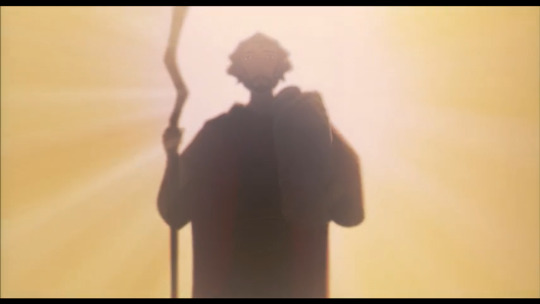
Now to Moses' most iconic (and important) moment!
3 notes
·
View notes
Text
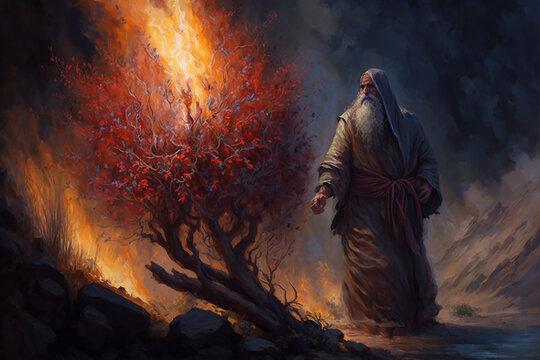
The Burning Bush
1 Now Moses kept the flock of Jethro his father-in-law, the priest of Midian; and he led the flock to the back side of the desert and came to the mountain of God, even to Horeb.
2 And the angel of the Lord appeared unto him in a flame of fire out of the midst of a bush; and he looked and, behold, the bush burned with fire, and the bush was not consumed.
3 And Moses said, “I will now turn aside and see this great sight, why the bush is not burnt.”
4 And when the Lord saw that he turned aside to see, God called unto him out of the midst of the bush and said, “Moses, Moses.” And he said, “Here am I.”
5 And He said, “Draw not nigh hither. Put off thy shoes from off thy feet, for the place whereon thou standest is holy ground.”
6 Moreover He said, “I am the God of thy father, the God of Abraham, the God of Isaac, and the God of Jacob.” And Moses hid his face, for he was afraid to look upon God.
7 And the Lord said, “I have surely seen the affliction of My people who are in Egypt, and have heard their cry by reason of their taskmasters, for I know their sorrows.
8 And I have come down to deliver them out of the hand of the Egyptians, and to bring them up out of that land unto a good land and a large, unto a land flowing with milk and honey, unto the place of the Canaanites and the Hittites, and the Amorites and the Perizzites, and the Hivites and the Jebusites.
9 Now therefore behold, the cry of the children of Israel hath come unto Me, and I have also seen the oppression wherewith the Egyptians oppress them.
10 Come now therefore, and I will send thee unto Pharaoh, that thou mayest bring forth My people, the children of Israel, out of Egypt.”
11 And Moses said unto God, “Who am I, that I should go unto Pharaoh, and that I should bring forth the children of Israel out of Egypt?”
12 And He said, “Certainly I will be with thee; and this shall be a token unto thee that I have sent thee: when thou hast brought forth the people out of Egypt, ye shall serve God upon this mountain.”
13 And Moses said unto God, “Behold, when I come unto the children of Israel and shall say unto them, ‘The God of your fathers hath sent me unto you,’ and they shall say to me, ‘What is His name?’ what shall I say unto them?”
14 And God said unto Moses, “I Am That I Am.” And He said, “Thus shalt thou say unto the children of Israel, ‘I Am hath sent me unto you.’”
15 And God said moreover unto Moses, “Thus shalt thou say unto the children of Israel: ‘The Lord God of your fathers, the God of Abraham, the God of Isaac, and the God of Jacob hath sent me unto you.’ This is My name for ever, and this is My memorial unto all generations.
— Exodus 3:1-15 | 21st Century King James Version (KJV21)
The Holy Bible; 21st Century King James Version Copyright © 1994 by Deuel Enterprises, Inc.
Cross References: Genesis 11:5; Genesis 15:13; Genesis 16:11; Genesis 24:12; Genesis 28:16; Genesis 31:6; Exodus 2:16; Exodus 2:23; Exodus 4:5; Exodus 4:10; Exodus 4:12; Exodus 6:12; Exodus 7:16; Deuteronomy 26:7; Matthew 22:32; Mark 12:6; Mark 12:26; Luke 20:37; John 8:24; John 8:28; Acts 3:13; Acts 7:6-7; Acts 7:30-31; Acts 7:33-34; 2 Peter 1:18; Hebrews 11:16
#Moses#God#speaking#burning bush#divine nature#Exodus 3:1-15#Book of Exodus#Old Testament#KJV21#21st Century King James Version Bible#Deuel Enterprises Inc.
24 notes
·
View notes
